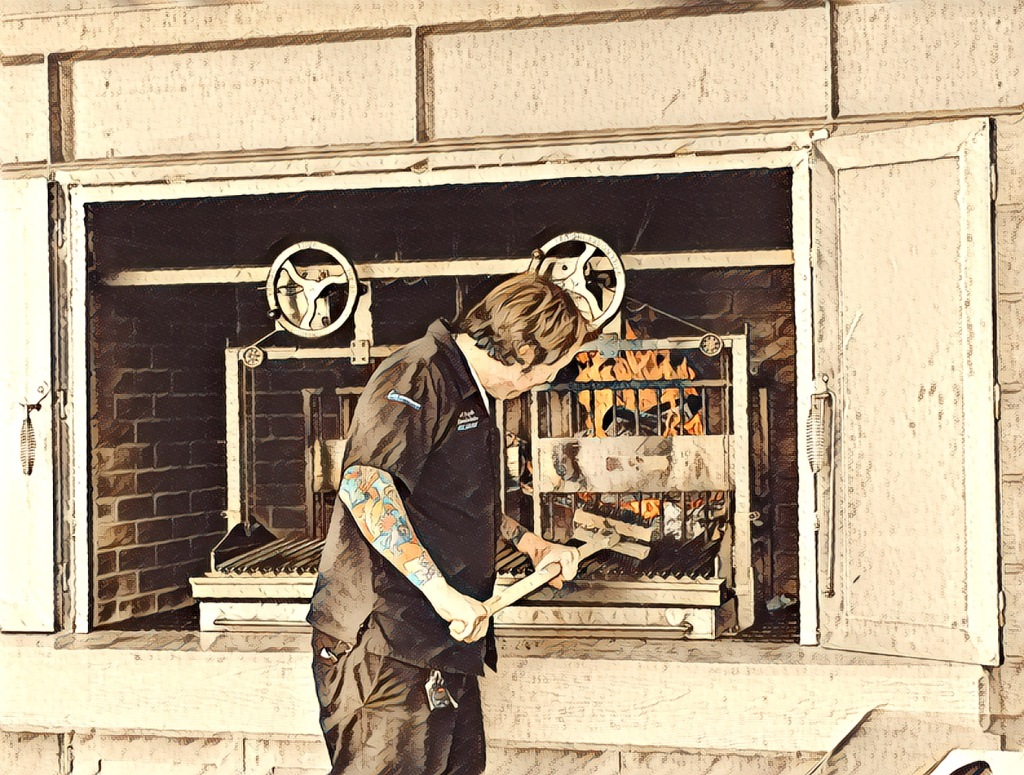
Craftsmanship – it truly is something to admire. You see it, if you look, in nearly every small town and village, in those homes that are a century old, in those hard-to-find mechanical watches, in handmade guitars, violins, and cellos, and in an artisan loaf of bread, wheel of aged cheese, or perfectly crema signed cup of cappuccino in your local coffee shop – the artisan’s hand. It is the care and seemingly effortless way that a mason lays a course of brick, or a sheetrock master muds a seam so perfectly that it barely requires sanding. We may take for granted how much skill and passion is required for a poet to write a verse, or a musician to bring lyrics to life, and certainly we are remiss in paying respect for the plumber who draws his or her art in copper. Craftsmanship is all around us, even though we may pay it little notice.
I am blessed to live in an area where craftspeople are tucked away in small villages and remote cabins making wooden canoes, guide boats, and rustic furniture by hand; where their power comes from muscle and hand tools without a cord or battery, and where every day in early spring, a handful of special residents carry buckets of sap from generous trees to slowly boil and evaporate into a golden syrup found on every breakfast table for a hundred miles. These are the craftspeople who do what they do with skill, knowledge, and passion.
Electricians, carpenters, masons, plumbers, sculptors, authors, poets, bakers, cooks, chefs, cheesemakers, coffee roasters, baristas, furniture makers, boat builders, and a plethora of others spend their days expressing themselves through the skills they have developed over time and in love with the work they do. Their passion is intoxicating, their skills admirable, their dedication inspiring, and their work so essential to our own appreciation of life. These are the artisans who dot the landscape of our lives and help us to “feel” alive. They allow us to remain hopeful for human beings and the planet we live on.
When people in those roles view what they do as simply a “job” then the magic seems to suffer. Just as each one of those individuals can inspire us and bring a smile, there are others whose work is less inspired and barely acceptable. The difference between work completed and work that lifts us up lies, often, in how the doer approaches the task at hand. If there is commitment to being great, a willingness to do more than it takes to perfect a skill, if the love of what they do supersedes the act and the intangible rewards of doing great work are more important than the tangible, then the result will frequently be awe-inspiring. Of course, we all need those tangible rewards, but rarely do they move us to jump out of bed in the morning with the excitement that the craft can provide.
“A person who works with their hands is a laborer; a person who works with their hands and their brain is a craftsperson; but a person who works with their hands, brain, and heart is an artisan.”
- Louis Nizer (lawyer/author)
Think about the artisans behind the work the next time you listen to a moving piece of music, read a poem that changes the way you think, admire a painting or magnificent detail on a building more than a century old. Think about the artisan the next time you take a moment to appreciate a beautifully designed wall of copper plumbing tucked away in the basement of a home, or an electric panel as meticulously wired as a memory board for a computer. Think about the craftsperson behind that hard crusted, chewy, deeply delicious loaf of artisan bread, creamy and tangy slice of goat’s milk cheese, or sip through the crema work of art on the top of your morning cappuccino – there is pride, hard work, and heart in everything that you experience when an artisan is involved, when the love of their craft is present.
My dad was a draftsman long before CAD. Many people I have met over the years talked about the artist he was with pen and ruler. He took pride in what he did and relished each day he worked at it even though his audience of admirers was limited to an occasional engineer and the builder who referenced his detailed work on the job. Steve Jobs was a consummate supporter of craftspeople and even insisted that those hidden memory boards inside a computer, the ones that almost no one would ever see, reflect the artisans who designed them. He insisted that this hidden work be as inspiring to look at as the exterior of the machines that were always in the public eye.
Watch a bread baker at the bench when he or she is shaping a loaf. In an instant you will see the difference between the worker and the craftsperson as they manipulate the dough with either respect or neglect. Watch the barista who has obviously practiced and practiced making their signature design on top of an espresso drink, versus the one who needs to simply “get it done”. Take a moment to relish the intricate flavor nuances of a cheese made with the passion of a craftsperson or a wine that changes how you think about this nectar of the gods. Respect the artisan and aspire to be one. This is what will differentiate your work from others and help you to realize your purpose.
Anything worth doing is worth doing at the level of an artisan.
PLAN BETTER – TRAIN HARDER – REFLECT THE CRAFT
Harvest America Ventures, LLC
Restaurant Consulting
www.harvestamericacues.com BLOG
(Over 800 articles about the business and people of food)
CAFÉ Talks Podcast
https://cafemeetingplace.com/cafe-podcasts
More than 80 interviews with the most influential people in food

Leave a comment